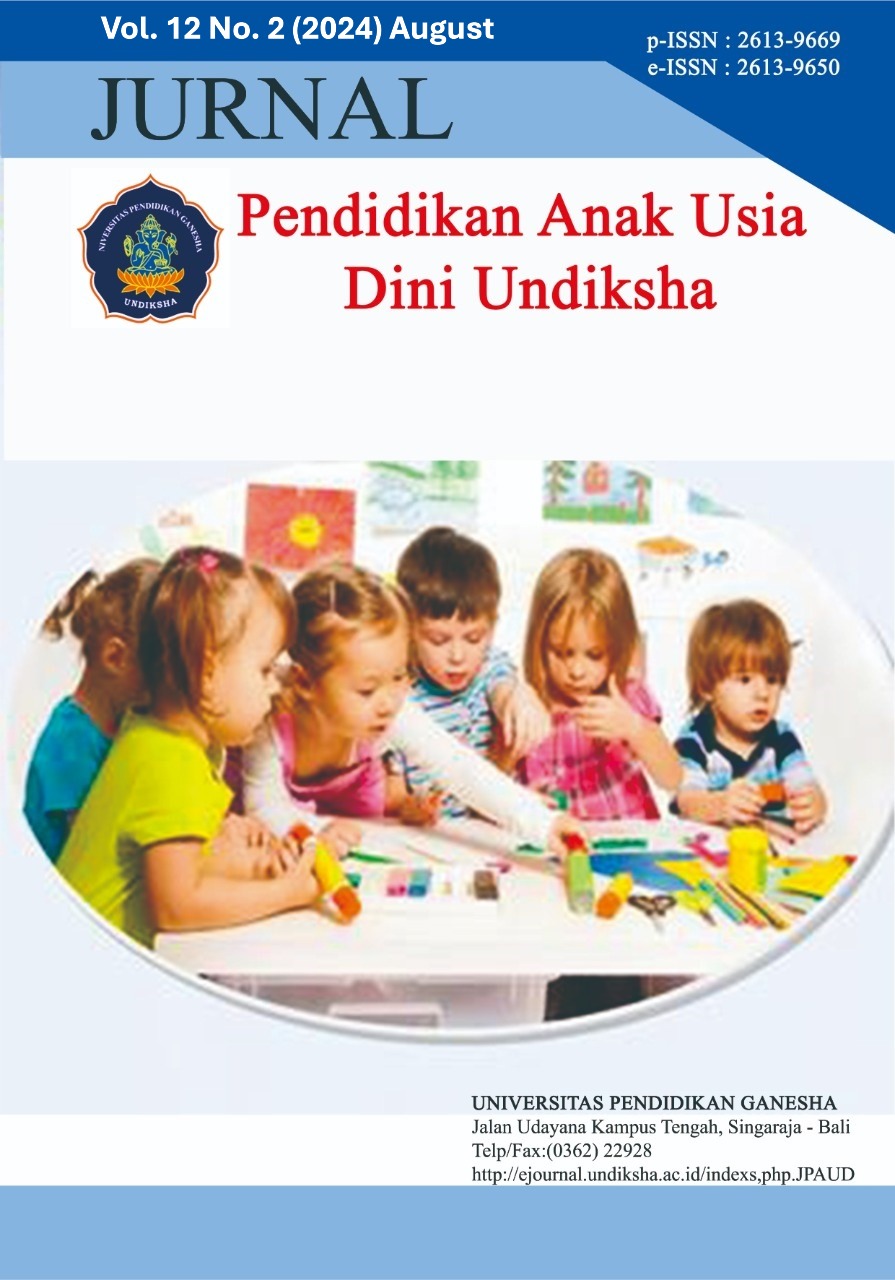Advancing 21st-Century Skills in Early Childhood Through the Project-Based Learning Model: Evidence from Children Aged 5–6 Years
DOI:
https://doi.org/10.23887/paud.v12i2.75057Kata Kunci:
Project Based Learning, 21st Century Skills, 4CsAbstrak
The paradigm shift in 21st-century education emphasizes equipping children not only with knowledge but also with essential skills. These skills include communication, critical thinking, creativity, and collaboration, commonly referred to as the 4Cs. In early childhood education, it is crucial for teachers to implement learning models that stimulate 21st-century skills, one of which is the project-based learning model. This study aims to analyze the effect of the project-based learning model on the 21st-century skills of children aged 5–6 years. The study subjects were group B children from schools that had begun implementing the project-based learning model. The research design used was a Nonequivalent Control Group Design. Data were collected through participatory observation using observation sheets that had been tested for reliability and construct validity. In the experimental class, the average pretest score was 41.813, and the average posttest score was 80.938, indicating an improvement in 21st-century skills after the implementation of the project-based learning model. Hypothesis testing using the Mann-Whitney U Test yielded a significance value of < 0.001 (< 0.05). Thus, it can be concluded that the project-based learning model has a significant effect on the 21st-century skills of children aged 5–6 years.
Diterbitkan
Cara Mengutip
Terbitan
Bagian
Lisensi
Hak Cipta (c) 2024 Azka Arina Nur Kamila Shiddiq, I Wayan Sutama, Wuri Astuti

Artikel ini berlisensiCreative Commons Attribution-ShareAlike 4.0 International License.
Authors who publish with the Jurnal Pendidikan Anak Usia Dini Undiksha agree to the following terms:
- Authors retain copyright and grant the journal the right of first publication with the work simultaneously licensed under a Creative Commons Attribution License (CC BY-SA 4.0) that allows others to share the work with an acknowledgment of the work's authorship and initial publication in this journal.
- Authors are able to enter into separate, additional contractual arrangements for the non-exclusive distribution of the journal's published version of the work (e.g., post it to an institutional repository or publish it in a book), with an acknowledgment of its initial publication in this journal.
- Authors are permitted and encouraged to post their work online (e.g., in institutional repositories or on their website) prior to and during the submission process, as it can lead to productive exchanges, as well as earlier and greater citation of published work. (See The Effect of Open Access)











